In October 2015, Kerry Group officially opened the doors on its state-of-the-art new global technology and innovation centre in Naas, Co Kildare. This new facility required a €100m investment to build, making it the single largest investment in food innovation ever by a company in Ireland.
Supported by the Department of Jobs, Enterprise and Innovation through Enterprise Ireland, Kerry Group’s global technology and innovation centre in Naas is the company’s flagship innovation hub and an upgraded replica on a similar facility in Beloit, Wisconsin in the US.
The facility allows customers of Kerry Group to come to Naas and interact with its global suite of flavours and ingredient technologies.
The Naas facility is almost like a playground for those in the food industry equipped with sensory kitchens, a culinary suite, a nutrition centre, as well as a discovery centre, which allows customers to collaborate in the kitchen with Kerry’s team of chefs, baristas and food technologists.

Culinary chefs tasting sushi at Kerry Group’s global innovation and technology centre in Naas, Co Kildare.
Today, the Naas facility employs over 900 people (with almost 40 different nationalities represented) across roles in R&D, sales, marketing, sensory analysis, regulatory compliance, commercial finance and customer care.
Hub-and-spoke model
Kerry operates what it calls a “hub-and-spoke” model. The facilities at Naas and Beloit act as its innovation centres, where it centralises all of its knowledge and technology.
These are the central hubs for Kerry’s two more important regions: EMEA and the Americas.
The company also operates a technology and innovation centre in Singapore, which is smaller than Naas and Beloit but allows for similar collaboration with customers in the Asia-Pacific, Middle East and Africa region.
These central innovation hubs are directly connected to the spokes of the Kerry machine, which is its entire network of production facilities, sales offices and regional application centres spread throughout the world.
Kerry’s new global technology centre at Naas is very much the fulcrum of how it engages with customers
This hub-and-spoke model allows Kerry to be both global and local at the same time.
Kerry’s new global technology centre at Naas is very much the fulcrum of how it engages with customers and is the key cog in its business development strategy for Europe and further afield.
A €100m investment like this has very much become par for the course for the Kerry Group we know today.
However, it must be remembered that it is less than 50 years since Kerry Group commissioned its very first manufacturing plant in Listowel, Co Kerry.
Since those early days in a muddy field by the banks of the River Feale, Kerry Group has grown – both organically and through acquisition – into a world leader in the taste and nutrition sector of the food industry.
Today, the company operates almost 150 production facilities right across the world, has sales in over 140 markets, employs more than 25,000 people and has a market valuation of close to €20bn.
In its simplest form, Kerry’s meteoric growth and evolution as a business is down to its relentless focus on food innovation, R&D and its partnership approach to meeting customer needs.
Diversification
According to Albert McQuaid, global chief technology officer at Kerry Group, a lot of the diversification of Kerry’s business model from its dairy processing roots into what it is today has come through acquisitions over the years.
“Kerry has evolved from a standardised dairy processing company into what we are today. We’re now manufacturing products such as highly functional ingredients for infant formula, protein extracts as well as whey isolates and whey fractionates. A lot of this diversification has come through acquisition but we’ve also developed much of our own technology too,” says McQuaid.
Much of the work that Kerry Group does around food R&D and new product development is customer-led innovation where a large customer might come to Kerry looking for them to solve a problem with a new recipe or develop a new ingredient.
We’re trying to discover that next product with the customer
“What we’re trying to do is get into the innovation process of our customers as early as possible and work with them from the start,” says McQuaid.
“We’re trying to discover that next product with the customer. It can take weeks, months or sometimes years to develop new products or innovations for customers.
It’s always a journey with customers to develop what they need, which allows us to develop a stickiness with our customers,” he adds.
The success of this partnership approach is clear. Kerry has been working with some of its customers for the past 40 years.
The acquisition of Beatreme Food Ingredients for €130m in 1988 was transformative for Kerry
McQuaid first joined Kerry Group in the early 1990s having completed a PhD in biochemistry and immediately headed to the US to cut his teeth in the growing ingredients business Kerry Group was building in North America.
The acquisition of Beatreme Food Ingredients for €130m in 1988 was transformative for Kerry and made it one of the largest food ingredients companies in the US.
The €370m acquisition of Dalgety in 1998 and the €400m acquisition of Quest Food Ingredients in 2004 further cemented Kerry’s position as a global leader in the food ingredients space.
Technology
However, Kerry was not simply buying up these businesses to consolidate its position in the ingredients sector. The company was also buying new technology, which the wider group would benefit from.
This focus on acquiring new technology has stood to Kerry over the years, allowing it to move and adapt with the changes in the global food industry. Today, the food industry is changing faster than ever in response to rapidly shifting consumer trends. For Kerry, this disruption brings new opportunities.
“The consumer has a lot more information than ever before and this has translated into a very fast moving food market. The pace of change is unprecedented,” says McQuaid.
“This is both a challenge and an opportunity for Kerry. Some products that we manufactured are now obsolete but, historically, change in the food industry has been good for Kerry,” he says. The company’s business model allows it to absorb change, while its continued focus on acquiring/developing new technology allows Kerry to remain at the vanguard of evolving consumer trends.
“In the last five years, the level of consumer demand and sales growth in the plant-based food space has really accelerated. Yet, we’ve been in plant-based foods for 20 years or more,” says McQuaid.
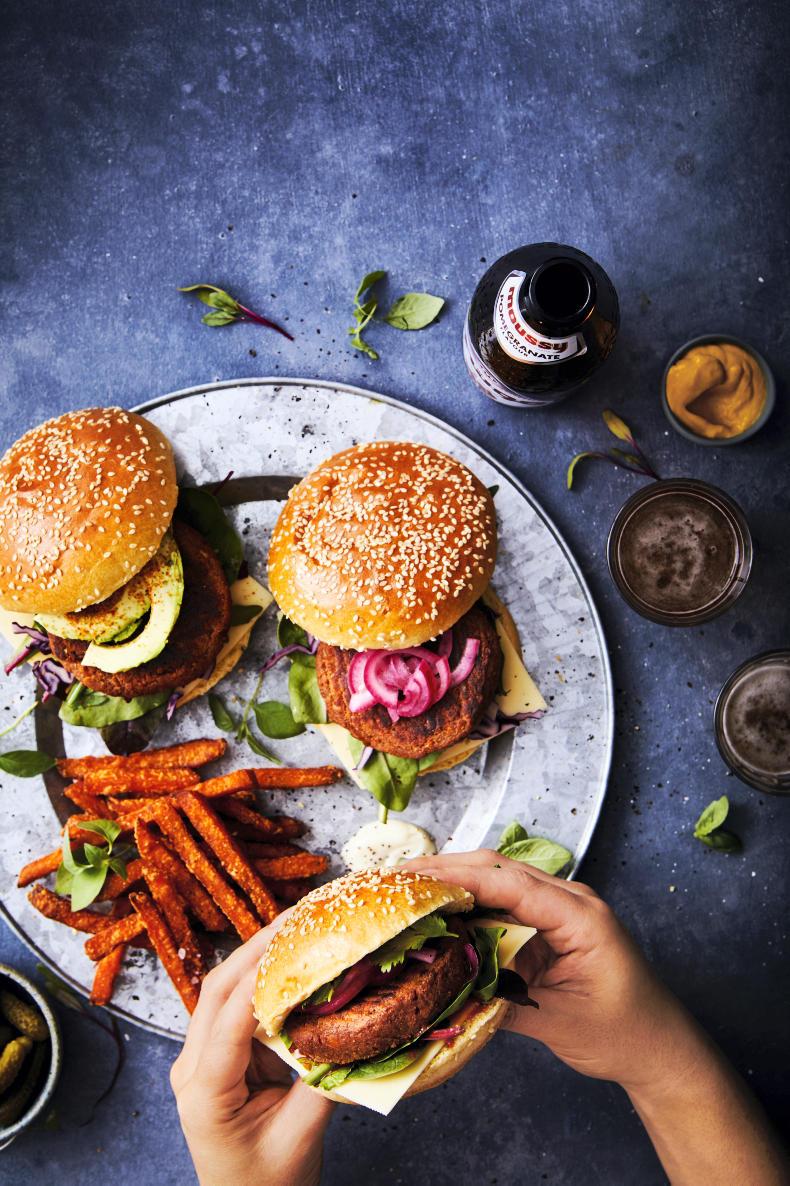
Plant-based solutions are a rapidly growing segment for Kerry Group.
According to McQuaid, it’s still early days in the development of the plant-based segment and the global food industry is trying to position itself to meet the rising demand.
“A lot of the traditional plant-based products were poor in taste and never encouraged consumers to repeat the purchase,” he says.
“But today’s consumer is demanding plant-based alternatives to be just as good in terms of taste and nutrition as the product they’re substituting them for. What we’re now seeing is that our customers are looking to us to help them develop a holistic consumer product that meets the needs of today’s changing consumer.”
Anyone with a keen eye will have noticed that much of Kerry Group’s acquisition activity in recent years has been building its expertise and technology pillar in “free-from” and “clean-label” food manufacture.
In early 2018, Kerry entered into a joint venture with Ojah, a Dutch company that manufacturers plant protein products. By the end of 2018, Kerry rounded out the year with another significant acquisition – a €178m deal to buy Ariake USA, which is the North American division of Japanese natural seasonings maker Ariake Japan. The company manufactures clean-label taste solutions derived from poultry, pork and vegetables at its facility in Virginia.
Plant-based technology
These two deals in particular further enhance Kerry Group’s portfolio of clean-label and plant-based technology.
According to McQuaid, the Dutch company Ojah created a plant protein product that overcame the traditional taste and texture barriers that this category has, which first attracted Kerry to the business. However, the big win from investing in the business is that it allows Kerry to take massive learnings from Ojah’s technology platform and share this across its entire business. The strategy is the same for the Ariake USA investment.
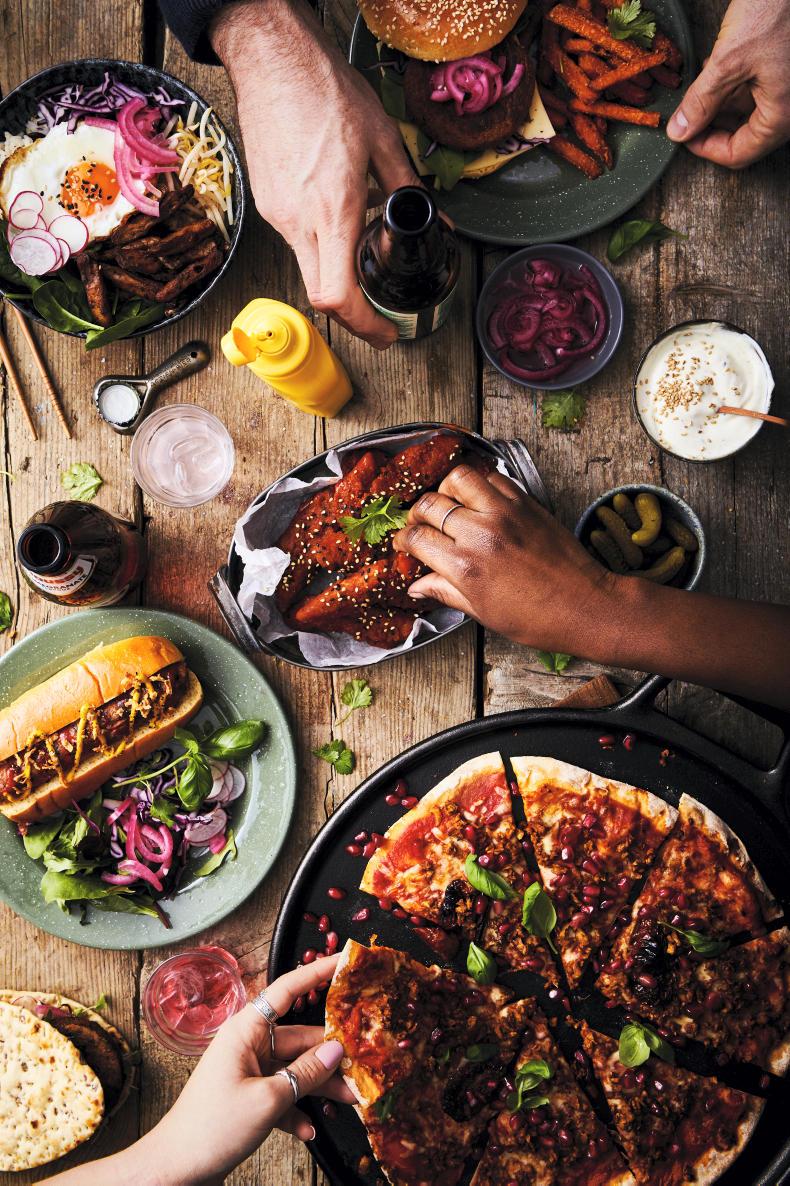
Plant-based solutions are a rapidly growing segment for Kerry Group.
What Kerry Group has learned very quickly is the sheer breadth of applications it can use its plant-based or free-from technology for. The plant-based trend is not just a phenomenon faced by the global meat sector.
Rather, plant-based proteins are finding their way into a whole spectrum of end-use markets. There are now plant-based alternatives for everything from ice cream to yoghurts to meat and to milk.
While these food segments are separate, Kerry understands that the technology used to develop them is adaptable across a whole range of applications.
According to McQuaid, Kerry Group watches the food sector very closely for emerging startup companies that are bringing new technology to market.
Many of these food-tech startups, such as California-based plant-based company Impossible Foods, is growing at incredibly fast rates right now because the plant-based market is so fragmented.
However, while demand is coming thick and fast for these companies because they have developed a good technology, many of them have no idea of the scale needed to service that level of demand or of the supply chain complexity that comes with real scale. And that’s where Kerry comes in.
Fast growth
“We’re looking to tap into the fast growth of startup food-tech companies. Because of the market fragmentation, there’s huge potential for consolidation,” says McQuaid.
Not only does Kerry serve its customers by developing new ingredient solutions or food innovations but it also shows its customers how to scale a new innovation or food solution in its business in terms of developing a new supply chain or tweaking its manufacturing process.

As McQuaid (left)points out, the pace of change in the global food industry right now is unprecedented as the level of consumer change only continues to accelerate. Health trends and fads have come and gone in the past but today’s consumer is demanding change but not at the expense of taste. Above all food must continue to taste good, whether it’s a cooked meat product or a dairy alternative.
This consumer demand and expectation is a major challenge for the food industry.
However, within change there is always opportunity and change has historically served Kerry very well.
In times of change like this, Kerry’s customers are looking to it more and more to help them find solutions and react with speed to changing consumer demands. Leveraging its vast knowledge base and R&D capabilities, Kerry looks set to reap the benefits of an evolving food industry.
In October 2015, Kerry Group officially opened the doors on its state-of-the-art new global technology and innovation centre in Naas, Co Kildare. This new facility required a €100m investment to build, making it the single largest investment in food innovation ever by a company in Ireland.
Supported by the Department of Jobs, Enterprise and Innovation through Enterprise Ireland, Kerry Group’s global technology and innovation centre in Naas is the company’s flagship innovation hub and an upgraded replica on a similar facility in Beloit, Wisconsin in the US.
The facility allows customers of Kerry Group to come to Naas and interact with its global suite of flavours and ingredient technologies.
The Naas facility is almost like a playground for those in the food industry equipped with sensory kitchens, a culinary suite, a nutrition centre, as well as a discovery centre, which allows customers to collaborate in the kitchen with Kerry’s team of chefs, baristas and food technologists.

Culinary chefs tasting sushi at Kerry Group’s global innovation and technology centre in Naas, Co Kildare.
Today, the Naas facility employs over 900 people (with almost 40 different nationalities represented) across roles in R&D, sales, marketing, sensory analysis, regulatory compliance, commercial finance and customer care.
Hub-and-spoke model
Kerry operates what it calls a “hub-and-spoke” model. The facilities at Naas and Beloit act as its innovation centres, where it centralises all of its knowledge and technology.
These are the central hubs for Kerry’s two more important regions: EMEA and the Americas.
The company also operates a technology and innovation centre in Singapore, which is smaller than Naas and Beloit but allows for similar collaboration with customers in the Asia-Pacific, Middle East and Africa region.
These central innovation hubs are directly connected to the spokes of the Kerry machine, which is its entire network of production facilities, sales offices and regional application centres spread throughout the world.
Kerry’s new global technology centre at Naas is very much the fulcrum of how it engages with customers
This hub-and-spoke model allows Kerry to be both global and local at the same time.
Kerry’s new global technology centre at Naas is very much the fulcrum of how it engages with customers and is the key cog in its business development strategy for Europe and further afield.
A €100m investment like this has very much become par for the course for the Kerry Group we know today.
However, it must be remembered that it is less than 50 years since Kerry Group commissioned its very first manufacturing plant in Listowel, Co Kerry.
Since those early days in a muddy field by the banks of the River Feale, Kerry Group has grown – both organically and through acquisition – into a world leader in the taste and nutrition sector of the food industry.
Today, the company operates almost 150 production facilities right across the world, has sales in over 140 markets, employs more than 25,000 people and has a market valuation of close to €20bn.
In its simplest form, Kerry’s meteoric growth and evolution as a business is down to its relentless focus on food innovation, R&D and its partnership approach to meeting customer needs.
Diversification
According to Albert McQuaid, global chief technology officer at Kerry Group, a lot of the diversification of Kerry’s business model from its dairy processing roots into what it is today has come through acquisitions over the years.
“Kerry has evolved from a standardised dairy processing company into what we are today. We’re now manufacturing products such as highly functional ingredients for infant formula, protein extracts as well as whey isolates and whey fractionates. A lot of this diversification has come through acquisition but we’ve also developed much of our own technology too,” says McQuaid.
Much of the work that Kerry Group does around food R&D and new product development is customer-led innovation where a large customer might come to Kerry looking for them to solve a problem with a new recipe or develop a new ingredient.
We’re trying to discover that next product with the customer
“What we’re trying to do is get into the innovation process of our customers as early as possible and work with them from the start,” says McQuaid.
“We’re trying to discover that next product with the customer. It can take weeks, months or sometimes years to develop new products or innovations for customers.
It’s always a journey with customers to develop what they need, which allows us to develop a stickiness with our customers,” he adds.
The success of this partnership approach is clear. Kerry has been working with some of its customers for the past 40 years.
The acquisition of Beatreme Food Ingredients for €130m in 1988 was transformative for Kerry
McQuaid first joined Kerry Group in the early 1990s having completed a PhD in biochemistry and immediately headed to the US to cut his teeth in the growing ingredients business Kerry Group was building in North America.
The acquisition of Beatreme Food Ingredients for €130m in 1988 was transformative for Kerry and made it one of the largest food ingredients companies in the US.
The €370m acquisition of Dalgety in 1998 and the €400m acquisition of Quest Food Ingredients in 2004 further cemented Kerry’s position as a global leader in the food ingredients space.
Technology
However, Kerry was not simply buying up these businesses to consolidate its position in the ingredients sector. The company was also buying new technology, which the wider group would benefit from.
This focus on acquiring new technology has stood to Kerry over the years, allowing it to move and adapt with the changes in the global food industry. Today, the food industry is changing faster than ever in response to rapidly shifting consumer trends. For Kerry, this disruption brings new opportunities.
“The consumer has a lot more information than ever before and this has translated into a very fast moving food market. The pace of change is unprecedented,” says McQuaid.
“This is both a challenge and an opportunity for Kerry. Some products that we manufactured are now obsolete but, historically, change in the food industry has been good for Kerry,” he says. The company’s business model allows it to absorb change, while its continued focus on acquiring/developing new technology allows Kerry to remain at the vanguard of evolving consumer trends.
“In the last five years, the level of consumer demand and sales growth in the plant-based food space has really accelerated. Yet, we’ve been in plant-based foods for 20 years or more,” says McQuaid.

Plant-based solutions are a rapidly growing segment for Kerry Group.
According to McQuaid, it’s still early days in the development of the plant-based segment and the global food industry is trying to position itself to meet the rising demand.
“A lot of the traditional plant-based products were poor in taste and never encouraged consumers to repeat the purchase,” he says.
“But today’s consumer is demanding plant-based alternatives to be just as good in terms of taste and nutrition as the product they’re substituting them for. What we’re now seeing is that our customers are looking to us to help them develop a holistic consumer product that meets the needs of today’s changing consumer.”
Anyone with a keen eye will have noticed that much of Kerry Group’s acquisition activity in recent years has been building its expertise and technology pillar in “free-from” and “clean-label” food manufacture.
In early 2018, Kerry entered into a joint venture with Ojah, a Dutch company that manufacturers plant protein products. By the end of 2018, Kerry rounded out the year with another significant acquisition – a €178m deal to buy Ariake USA, which is the North American division of Japanese natural seasonings maker Ariake Japan. The company manufactures clean-label taste solutions derived from poultry, pork and vegetables at its facility in Virginia.
Plant-based technology
These two deals in particular further enhance Kerry Group’s portfolio of clean-label and plant-based technology.
According to McQuaid, the Dutch company Ojah created a plant protein product that overcame the traditional taste and texture barriers that this category has, which first attracted Kerry to the business. However, the big win from investing in the business is that it allows Kerry to take massive learnings from Ojah’s technology platform and share this across its entire business. The strategy is the same for the Ariake USA investment.

Plant-based solutions are a rapidly growing segment for Kerry Group.
What Kerry Group has learned very quickly is the sheer breadth of applications it can use its plant-based or free-from technology for. The plant-based trend is not just a phenomenon faced by the global meat sector.
Rather, plant-based proteins are finding their way into a whole spectrum of end-use markets. There are now plant-based alternatives for everything from ice cream to yoghurts to meat and to milk.
While these food segments are separate, Kerry understands that the technology used to develop them is adaptable across a whole range of applications.
According to McQuaid, Kerry Group watches the food sector very closely for emerging startup companies that are bringing new technology to market.
Many of these food-tech startups, such as California-based plant-based company Impossible Foods, is growing at incredibly fast rates right now because the plant-based market is so fragmented.
However, while demand is coming thick and fast for these companies because they have developed a good technology, many of them have no idea of the scale needed to service that level of demand or of the supply chain complexity that comes with real scale. And that’s where Kerry comes in.
Fast growth
“We’re looking to tap into the fast growth of startup food-tech companies. Because of the market fragmentation, there’s huge potential for consolidation,” says McQuaid.
Not only does Kerry serve its customers by developing new ingredient solutions or food innovations but it also shows its customers how to scale a new innovation or food solution in its business in terms of developing a new supply chain or tweaking its manufacturing process.

As McQuaid (left)points out, the pace of change in the global food industry right now is unprecedented as the level of consumer change only continues to accelerate. Health trends and fads have come and gone in the past but today’s consumer is demanding change but not at the expense of taste. Above all food must continue to taste good, whether it’s a cooked meat product or a dairy alternative.
This consumer demand and expectation is a major challenge for the food industry.
However, within change there is always opportunity and change has historically served Kerry very well.
In times of change like this, Kerry’s customers are looking to it more and more to help them find solutions and react with speed to changing consumer demands. Leveraging its vast knowledge base and R&D capabilities, Kerry looks set to reap the benefits of an evolving food industry.








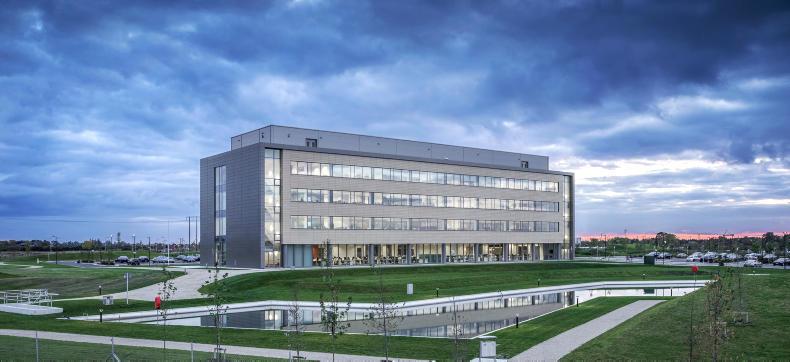
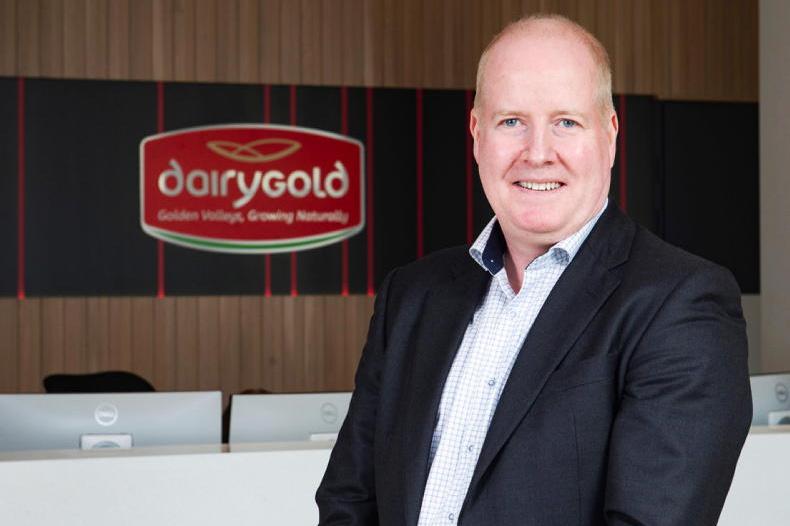

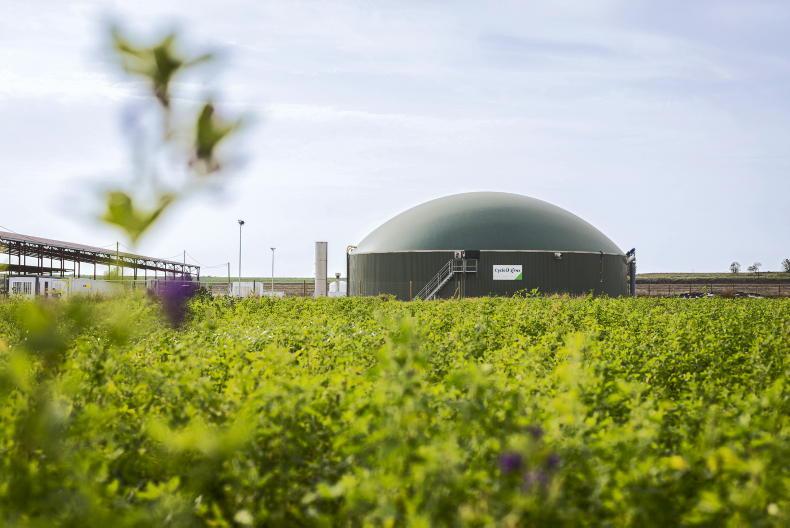

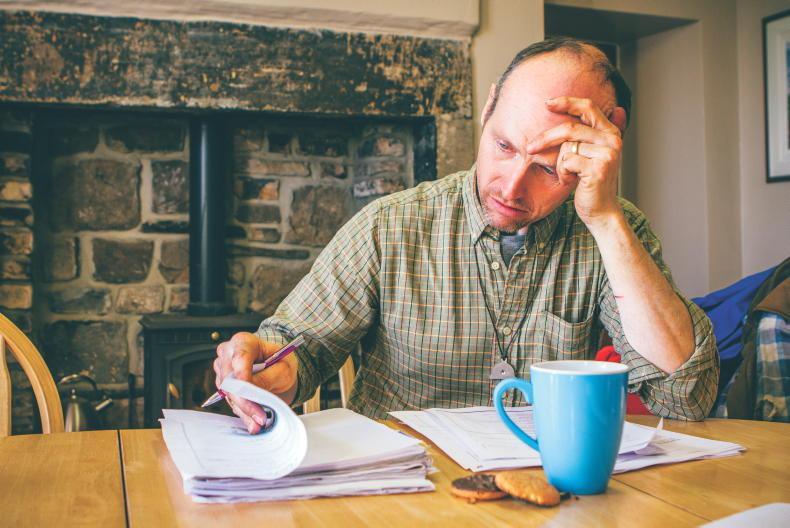
SHARING OPTIONS